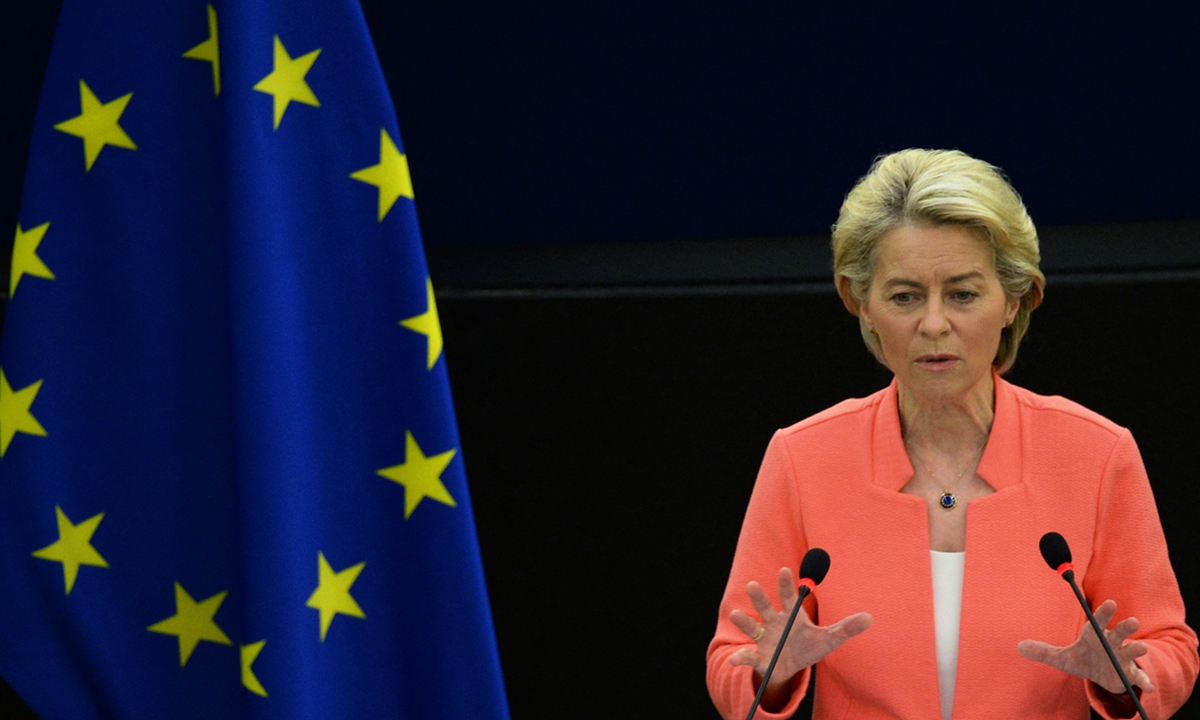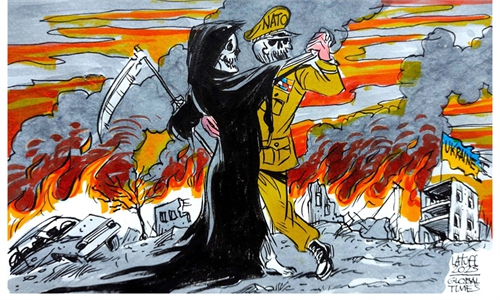
European Commission President Ursula von der Leyen. Photo: AFP
If peace can be defined as the absence of war, then surely a peace award should be the acknowledgment of contributing towards ending, easing or even averting armed conflict. Sadly, this is not always true. Peace awards are presented not only to the peacemakers, but also to the warmongers - those who cause, promote or prolong hostilities and bloodshed between or within sovereign nations.
In such cases, an award should not be regarded as an honor bestowed on a worthy recipient but a badge of shame that mocks the sacrifice of countless civilians and combatants who now lie in their graves.
So it seemed peculiar that last week the World Jurist Association should single out the European Commission to receive its World Peace and Liberty Award. It is the WJA's highest honor, presented to individuals or bodies distinguished in promoting "peace through the rule of law." It is sometimes spoken of as the Nobel Prize of international law.
Ursula von den Leyden, president of the European Commission received the award at a ceremony symbolically staged at the United Nations' headquarters building in New York. In her acceptance speech, she spoke of the war between Ukraine and Russia, quoting from the UN Charter to declare countries should refrain from "the use of force against the territorial integrity or political independence of any state."
Why then has the European Commission, the executive arm of the European Union, deliberately concocted a method of evading its own internal checks and balances - designed to prevent the EU from distributing military aid to countries outside the bloc - in order to enable it to send billions of euros worth of weapons and ammunition from its member countries?
The disingenuously-named European Peace Facility (EPF) was created by the EU in 2021 to finance initiatives designed to avoid wars and encourage peace in other countries and strengthen international security. It was necessary because the EU is not allowed to finance military actions itself. The EPF's original budget of 5.5 billion euros ($6.1 billion) was meant to partly reimburse its 27 member countries for the cost of lethal weapons, ammunition, and other military hardware supplied to other nations for those purposes. Now the budget stands at 12 billion euros ($13.5 billion) and has been repurposed so it can now be used to help Ukraine. Already, 4.6 billion euros ($5.1 billion) has been allocated to Kiev, and last week the EU's foreign policy chief, Josep Borrell, outlined plans to send 20 billion euros ($22.3 billion) to Ukraine over the next four years. This war marks the first time the EU has supplied lethal weapons this way to a third country.
How does this fit with the Washington-based WJA's noble motto of "peace through the rule of law"? How does it tally with von den Leyden's quoting of the UN Charter which declaims "the use of force against the territorial integrity or political independence of any state"? Prolonging a war seems a perverse path to peace - especially if the munitions and arms manufacturers within the EU are tooling up their factories to meet the ravenous, but very lucrative, demands of their ally in Kiev. Those in Europe have earned hundreds of millions in profits. The wrong-headedness of awarding a peace commendation to a country or bloc which supports war is not new, unfortunately.
In 2012, there was fierce criticism of the decision to award the prestigious Nobel Peace Prize to the EU, supposedly in recognition of the union's contribution, by its simple existence, of avoiding any repetition of the near-existential World War I and World War II, which originated on European soil. South Africa's own peace laureate Archbishop Desmond Tutu and two other former recipients said the EU was unsuitable because its values did not align with those of the Nobel. Primarily, they said, it advocates "security based on military force and waging wars rather than insisting on the need for an alternative approach." Perhaps the most egregious example of a misplaced Nobel was the one given to former US president Barack Obama in 2009, when he had been in office for only nine months and was leading a country then fighting wars in both Iraq and Afghanistan. He said he would use the award to inspire him to remove America from its seemingly permanent war footing. As he said it, he launched a 30,000 troop surge into Afghanistan and the USA remained at war for all eight years of his two terms - the first president to achieve this dubious distinction. So much for peace awards.
The author is a journalist and lecturer living in Britain. opinion@globaltimes.com.cn

